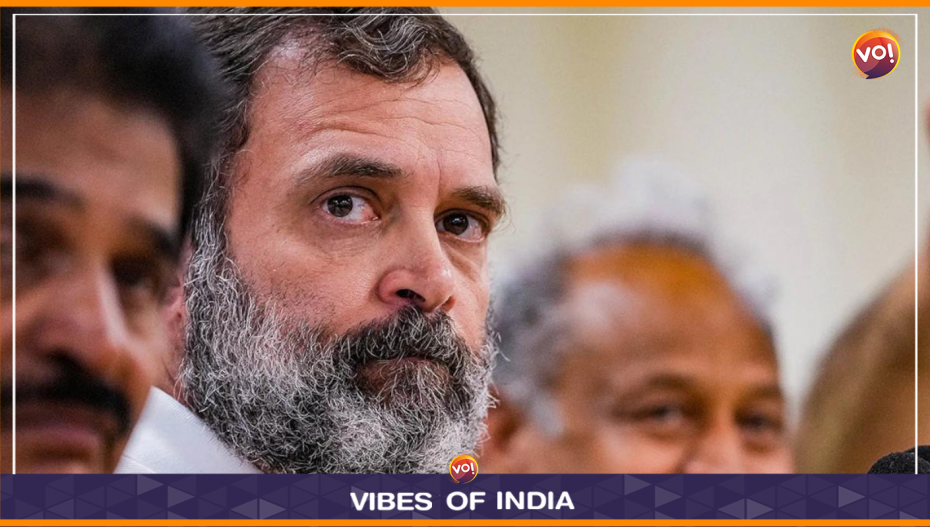The Surat court on Thursday rejected Congress leader Rahul Gandhi’s plea for stay on conviction in a defamation case that saw him being disqualified as Lok Sabha Member of Parliament by observing he should have been “more careful with his words” since he was an MP and the then president of the country’s second-largest political party.
The court of additional session judge Robin P Mogera rejected Rahul’s application filed for relief pending his appeal against a lower court’s order sentencing him to two years in jail in a 2019 defamation case over his “Modi surname” remark.
It said a “high standard of morality” is expected from a person like the appellant, adding that the trial court had imposed a sentence which was permissible in law.
On March 23, a surat court here sentenced Rahul Gandhi to two years in jail after convicting him under sections 499 and 500 of the Indian Penal Code for criminal defamation in the case filed by BJP MLA Purnesh Modi.
A day later, Rahul Gandhi, who was elected to the Lok Sabha from Wayanad in Kerala in 2019, was disqualified under provisions of the Representation of the People Act.
In its order on Thursday, the additional sessions court also observed that Gandhi’s removal or disqualification as MP under section 8(3) of the Representation of the People Act, 1951 “cannot be termed as irreversible or irreparable loss or damage.”
“Any defamatory words coming from the mouth of appellant are sufficient enough to cause mental agony to an aggrieved person,” the court of additional sessions judge RP Mogera said in its order. By uttering defamatory words and comparing persons having ‘Modi’ surname with thieves “would definitely have caused mental agony and harm the reputation of complainant Purnesh Modi, who is socially active and dealing in public,” the court said. Modi, a Member of Legislative Assembly (MLA) of the ruling Bharatiya Janata Party from Surat West, had filed a complaint against Gandhi under sections 499 and 500 of the Indian Penal Code for criminal defamation over his “How come all thieves have Modi surname?” remark, which was made during an election rally at Kolar in Karnataka on April 13, 2019.
“It is not a disputed fact that the appellant was the Member of Parliament and president of the second largest political party, and looking at such stature of appellant, he should have been more careful with his words, which would have a large impact on the mind of people,” the court stated.
The court said the counsel for the appellant had failed to demonstrate that the denial of an opportunity to him to contest the election by not staying his conviction will cause him “irreversible and irrevocable damage.”
It also rejected the argument of Gandhi’s counsel that there cannot be defamation against a community as such.
“Community as such may not have a reputation, but the reputation will only be of individual members. When the defamatory matter affects each and every member of an ascertainable class or group, each of them or all of them could set the law in motion,” it said.
Looking at the prima facie evidence and observations made by the trial court, it transpires Gandhi had made certain derogatory remarks against Prime Minister Narendra Modi in general public and further compared the persons having ‘Modi’ surname with thieves, the court observed. Moreover, the complainant is an ex-minister and involved in public life and such defamatory remarks would have certainly harmed his reputation and caused him pain and agony in society, the court added.
The objection made by the appellant with regard to the trial being vitiated due to lack of territorial jurisdiction cannot be accepted at this stage, the additional sessions court judge said. Gandhi’s lawyer Kirit Panwala said the sessions court’s order will be challenged in Gujarat High Court. In his submission, Gandhi had said if the March 23 judgment of the trial court is not suspended and stayed, it will cause irreparable damage to his reputation.
Gandhi had said the excessive sentence is contrary to the law on the subject and unwarranted in the present case which has overriding political overtones. Gandhi had termed his conviction as “harsh”, “erroneous” and “patently perverse” and said the trial court treated him harshly after being overwhelmingly influenced by his status as an MP.
Also Read: Yash Chopra’s Wife Pamela Chopra, Mom Of Adi Chopra, No More












